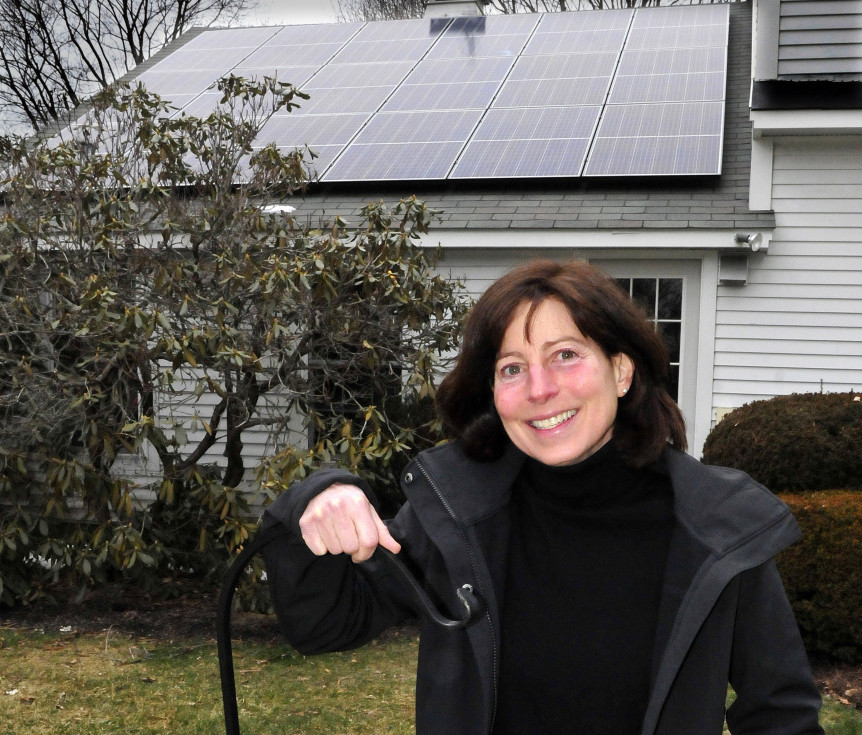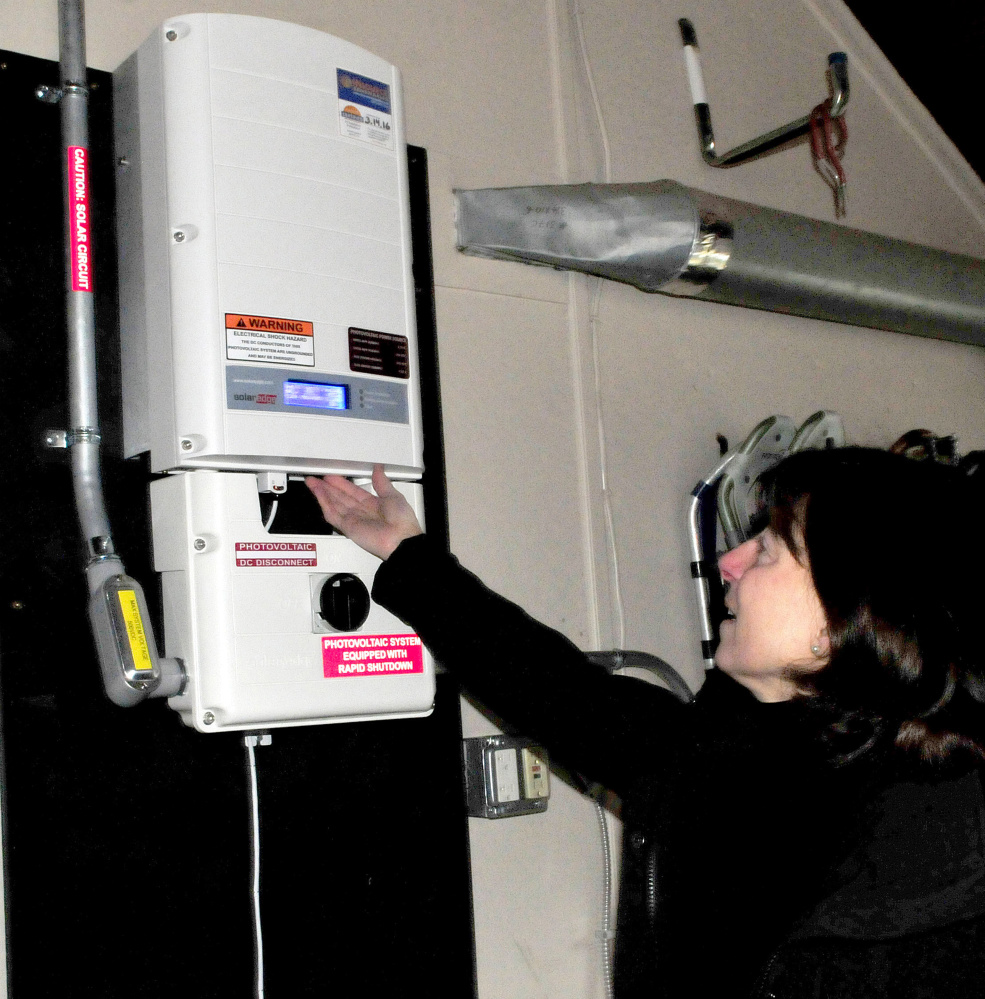WATERVILLE — Jan and Whitney King had been thinking for years about installing a solar power system to provide household electricity, but it wasn’t until recently that they took the plunge and put 18 solar modules on the roof of their West River Road home.
The couple timed their new energy project to capitalize on low prices provided through Solarize Mid-Maine, a regional project aimed at getting more people to install solar panels in a bulk-purchasing arrangement with Insource Renewables, a Pittsfield company.
The couple is the first to join the project, but more are signed up with deadlines to sign contracts at lower-tier rates coming up. Others, though, are holding off to see if state legislation that could change the way solar power is charged to customers goes through.
The Kings’ new system should produce enough power to cover 85 percent of their home energy use, Jan King said. The couple plan to replace some appliances with high-efficiency models and installed LED light bulbs in most parts of the house to reduce power consumption.
After the Kings pay off the system in 11 years, they basically will be producing free power, King added, but the bottom line wasn’t the only reason they installed solar panels. Environmental considerations played strongly into the decision to invest in the technology.
“It’s clean. It’s renewable. It just makes so much sense to be using a carbon-free power source,” King said.
The Solarize Mid-Maine project aims to get dozens of homeowners and businesses across a wide area to install solar power systems. The project was led by the Sustain Mid Maine Coalition in the Waterville area, but has expanded to communities around Unity and Skowhegan and is working with groups such as the Unity Barn Raisers and Skowhegan Main Street.
The program gives people a discounted price on solar installation by enabling them to join others in a bulk purchase.
As more people join the program, the price of installation drops to lower pricing tiers, said Vaughn Woodruff, the owner of Insource Renewables. The company was selected by Sustain Mid Maine through a competitive bidding process.
Solarize Mid-Maine is modeled on similar projects in states such as Oregon, Washington, Massachusetts, Vermont and New Hampshire. Last year, Freeport and Brunswick also started Solarize programs. Solar power has become popular in recent years because dropping prices for solar equipment is making it competitive with other power sources.
By buying a solar system through bulk purchasing, customers can realize savings of up to 10 percent, Woodruff said.
The average price of a 6-kilowatt residential solar system is about $18,000, and people who buy solar can apply for a 30 percent federal tax credit to help cover the cost, Woodruff added.
While the Kings were the first customers to join the Solarize project, three other homeowners are under contract with Insource, Woodruff said. Out of about 150 people who expressed interest in the project, about a third have signed up to get quotes, he said.
The company is offering the lowest pricing tier to people who sign a contract by April 23, which will allow first buyers to have the greatest cost certainty and grow the purchasing group so prices will stay low for people who join later, Woodruff said.
“It makes it simpler for everyone. It provides an incentive to buy early,” he added.
The deadline to sign a contract and get the bulk discount is May 21 for communities around Skowhegan, May 28 for customers in the Unity area and June 4 for those in and around Waterville.
But uncertainty about possible changes to state policy on solar power is leading some people to postpone investing until the Legislature votes on whether current practice, net metering, will stay or be replaced with a different system.
“People are a little hesitant right now because they don’t know what they are signing on for,” said John Reuthe, who heads up the Sustain Mid Maine energy team.
Under net metering rules, people who own private solar power systems are given a one-to-one credit for power they generate and is sent back into the grid. That means that solar system owners only pay for they power they consume over what they generate. If they produce more power than they use, people receive a credit to use toward future bills.
Those rules have been around for years, but a bill before the Legislature would adjust the system to provide solar producers with a monetary credit tied to a 20-year contract set up by the Public Utilities Commission.
The proposal outlines an ambitious program to increase solar production in Maine from 18 megawatts to 250 megawatts in the next five years. Under the plan, roughly 40 percent of that energy production would come from homes and small businesses.
The state’s solar industry, power companies, environmental groups other stakeholders have supported the plan, but is has run into opposition from Gov. Paul LePage, whose energy office says it continues subsidies for homeowners with solar-electric panels at the expense of other ratepayers. Last week, Republican legislators called for the Public Utilities Commission to decide the fate of net metering, raising questions about the fate of the solar initiative.
Despite possible changes in state policy. Woodruff said he expected success with the Solarize Mid Maine project.
Even if people decide not to pursue a solar installation, the Solarize project is a way to connect with people about other options to make their homes and businesses energy efficient, Woodruff added.
“It’s a gateway technology,” he said. “People want to do something with their energy costs, and we are definitely using this program as a platform to link people with other options that might better fit their needs.
“Ultimately, we want to raise the overall energy literacy of the area,” he said.
Peter McGuire — 861-9239
Send questions/comments to the editors.





Comments are no longer available on this story